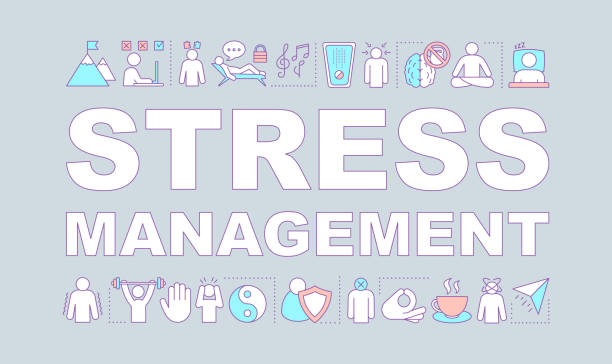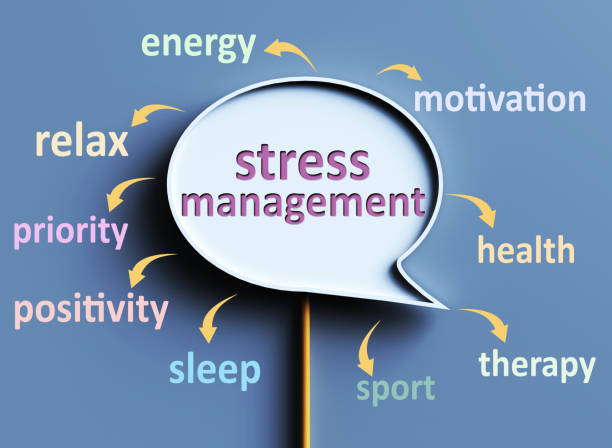Introduction: Stress and Erectile Dysfunction
Erectile dysfunction (ED) is a widespread condition that affects millions of men globally. While physical factors like health conditions or medications can cause ED, stress is one of the most common and often overlooked contributors. In this article, we’ll explore how stress can lead to erectile dysfunction and offer practical tips to help you manage stress for better sexual health.
Understanding the link between stress and ED is a crucial first step in improving your overall well-being and regaining confidence in the bedroom. By recognizing the signs of stress and taking proactive steps to manage it, you can regain control of your health and reduce the negative effects of stress on your sexual function.
What is Erectile Dysfunction?
Before we dive into the connection between stress and erectile dysfunction, it’s important to first understand what ED is. Erectile dysfunction, or ED, is when a man is unable to get or keep an erection strong enough for sexual activity. This condition can be caused by many factors, including physical health problems, emotional issues, and lifestyle choices.
While occasional trouble with erections is normal for many men, ongoing ED can impact relationships, self-esteem, and mental well-being. In many cases, ED is caused by a combination of factors, with stress playing a major role in making the condition worse. By addressing stress and its effects, you can help improve your sexual health and overall quality of life.

How Stress Causes Erectile Dysfunction
Stress, whether it comes from work, relationships, or the everyday pressures of life, can have a major effect on your sexual health. When you are under stress, your body reacts in ways that can interfere with your ability to get and maintain an erection. Here’s a closer look at how stress can impact erectile function:
1. Stress and Hormonal Imbalance
When you experience stress, your body enters “fight or flight” mode. This response causes the release of stress hormones like cortisol and adrenaline. These hormones help prepare your body to handle potential threats by increasing your heart rate and blood pressure, among other physical changes.
However, when stress becomes chronic, it leads to consistently high levels of cortisol. This long-term increase in cortisol can interfere with the production of testosterone, a key hormone for sexual desire and performance. Low testosterone levels can result in a reduced libido, making it harder to achieve or maintain an erection. Managing stress is crucial for keeping your hormone levels balanced and maintaining healthy sexual function.
2. Impact on Blood Flow
Stress can cause blood vessels to tighten, which reduces blood flow to the penis. Healthy erections depend on good blood circulation, and when blood flow is restricted due to stress, it becomes difficult to achieve or keep an erection.
Additionally, stress-induced constriction of blood vessels can lead to high blood pressure, making the problem even worse. Over time, poor blood circulation can contribute to erectile dysfunction, and if stress isn’t managed, this cycle can keep going, making it harder to improve sexual health.
3. Mental Health and Anxiety
Stress can make existing mental health issues, like anxiety and depression, even worse. Anxiety, in particular, can create a harmful cycle that makes erectile dysfunction (ED) more difficult to overcome. Worrying about not being able to perform sexually because of stress can increase anxiety, which then makes it harder to maintain an erection.
This cycle can become even more problematic when stress leads to performance anxiety. The fear of not performing well can create emotional tension, making it even harder for the body to relax and respond sexually in a healthy way. Recognizing and managing these stress-related factors is key to breaking the cycle and improving sexual health.
4. Decreased Libido
Chronic stress can cause a decreased interest in sex. When you’re under stress, your mind is often consumed with problems and worries, which leaves little space for sexual desire. On top of that, the physical effects of stress—such as feeling tired or irritable—can make it harder to feel motivated to engage in intimate activities. Over time, this can lead to a reduced libido and make it more difficult to connect with your partner in a healthy, sexual way. Managing stress is an important step in regaining interest in intimacy and improving sexual health.
The Role of Stress in Psychological Erectile Dysfunction
Stress-induced erectile dysfunction is often considered a type of psychological ED. Psychological factors, such as stress, anxiety, or depression, are some of the most common causes of erectile dysfunction, especially in younger men.
When stress is the primary cause of ED, the condition is usually temporary. Once the source of stress is addressed or managed, erectile function can often return to normal. However, if stress becomes chronic, it may take longer to see improvements, and medical treatment or therapy may be needed to help restore sexual function and overall well-being. Managing stress early is key to preventing long-term effects on your sexual health.

Managing Stress to Improve Erectile Dysfunction
Now that we’ve discussed how stress can contribute to erectile dysfunction, the next step is to focus on effective ways to reduce stress and enhance sexual health. There are several strategies that can help you manage stress and improve erectile function. By incorporating these methods into your daily routine, you can take control of your health and improve both your mental well-being and sexual performance:
1. Practice Mindfulness and Relaxation Techniques
Mindfulness practices, such as deep breathing, meditation, and yoga, can be highly effective in managing stress. These techniques help calm both the mind and body, lower cortisol levels, and promote relaxation. Regularly practicing mindfulness can help you feel more at ease and better equipped to handle stress. By including these practices in your daily routine, you can significantly reduce the negative effects of stress on your sexual health and improve overall well-being.
2. Exercise Regularly
Physical activity is one of the most effective ways to reduce stress and improve erectile function. Exercise boosts the production of endorphins, which are the body’s natural mood enhancers, and helps lower cortisol levels. Regular physical activity also promotes better blood flow, which is crucial for sexual performance.
Aim to get at least 30 minutes of moderate exercise most days of the week. Activities like walking, swimming, and cycling not only improve overall cardiovascular health but also support better erectile function. By staying active, you can reduce stress and enhance your sexual health.
3. Get Enough Sleep
Sleep is crucial for both mental and physical health. When you don’t get enough sleep, stress levels can rise, and this can also have a negative impact on testosterone production. Chronic sleep deprivation can make it harder to manage stress and affect your overall well-being. To support your body’s recovery, balance your hormones, and improve your mood, aim for 7 to 9 hours of quality sleep each night. Getting enough rest is an important step in reducing stress and boosting sexual health.
4. Eat a Balanced Diet
A healthy diet plays a vital role in managing stress and improving erectile function. To support your sexual health, focus on eating nutrient-rich foods, such as leafy greens, whole grains, and lean proteins. Foods rich in omega-3 fatty acids, like fish, and antioxidants found in fruits and vegetables, can help reduce inflammation and improve blood circulation. Better blood flow is essential for sexual health, and a balanced diet can help you achieve this while also reducing stress. Eating well is an important step in improving both your physical and sexual well-being.
5. Communicate with Your Partner
Open communication with your partner is essential for reducing the emotional tension that often comes with erectile dysfunction. When stress is a major factor in ED, having the support of your partner can help you feel more relaxed and less anxious. Talking openly about your concerns and working together to manage stress can strengthen your relationship and improve your mental health. By addressing the issue as a team, you can find solutions that benefit both your emotional well-being and your sexual health.
6. Seek Professional Help
If stress is seriously affecting your sexual health, it may be time to speak with a healthcare professional. A doctor or therapist can help identify the underlying causes of your stress and offer treatment options to improve your well-being. In some situations, therapy or counseling can be helpful to address the emotional and psychological factors that contribute to erectile dysfunction (ED). Seeking professional guidance can give you the support you need to manage stress and enhance both your mental and sexual health.

When to Seek Medical Treatment for ED
In some cases, stress-related erectile dysfunction may persist despite efforts to manage stress. If you notice ongoing difficulty achieving or maintaining an erection, it’s essential to consult with a doctor. A healthcare provider can conduct tests to rule out underlying medical conditions, such as diabetes or heart disease, that may be contributing to ED.
There are also various treatments available for erectile dysfunction, including medications like sildenafil (Viagra), lifestyle changes, or even therapy. A medical professional can help determine the best course of action based on your specific needs.
Conclusion: Take Control of Your Sexual Health
Stress is a significant factor in erectile dysfunction, but it’s not a condition you have to live with. By understanding the connection between stress and ED, you can take proactive steps to manage stress and improve your sexual health.
Incorporating relaxation techniques, exercising regularly, eating a healthy diet, and getting enough sleep are all effective strategies for reducing stress and improving erectile function. And remember, communication with your partner and seeking professional help when needed can make all the difference.
If stress is affecting your sexual health, take the time to address it. With the right approach, you can restore your confidence and enjoy a fulfilling, healthy sex life.

